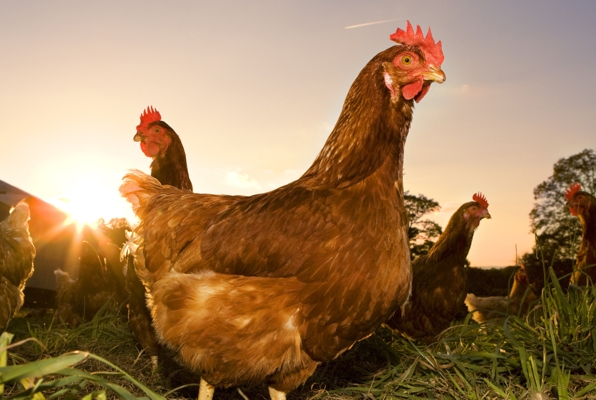You’ve probably heard about the Bird Flu outbreak in Texas, by now. It’s spreading, and not only farmers, but doctors are concerned. Those in the know warn, bird flu could become an epidemic effecting humans – and more seriously than COVID…

The issue probably deserves more – and higher-profile – coverage than it’s been getting thus far. The Bird Flu epidemic in Texas is spreading. And the first human case has been documented. The virus is officially dubbed ‘H5N1’.
White House Briefing
Virus experts told the media that the bird flu outbreak in Texas could be ‘100 times worse than COVID’. Not only that, but it’s just as likely to infect mammals as it it to effect avian species. And at least half of of Bird Flu cases are fatal.
The virus has mutated since it was first discovered at a Texas poultry mega-operation. There’s no way to know if or when it may mutate again.
H5N1 is already widespread. A polar bear in Alaska and penguins in Antarctica have been confirmed to have died from it. So have 3 cats in Texas. And a number of dairy cattle herds in Texas are reported affected.
CDC: ‘Very Serious’
The Centers for Disease Control and Prevention (CDC) say they’re taking the Bird Flu outbreak very seriously.
Speaking at the briefing, Dr. Suresh Kuchipudi, a bird flu researcher from Pittsburgh, warned: “This virus [has been] on the top of the pandemic list for many, many years and probably decades. […] And now we are getting dangerously close to this virus potentially causing a pandemic.’
“[T]he virus is already globally distributed, and this virus particularly, that is often perceived as an avian virus – it can, and it has shown, the ability to infect a range of mammalian hosts including humans,” Kuchipudi confirmed.
What you can do
There are several things you can do top protest yourself from infection with the Bird Flu. The usual cautions to wash your hands frequently, between preparation task, and basic kitchen food safety precautions should be taken as a baseline.
But scientists and doctors are particularly adamant that you avoid eating soft-yolked eggs. Eggs always carry bacteria and viruses on their surfaces, and those bugs can get into the interior parts you at easily during cracking. Washing your eggs won’t help. Their shells are porous. And the USDA warns, “[washing] may actually increase the risk of contamination because the wash water can be ‘sucked’ into the egg through the pores in the shell.”
The good news
The good news is, the virus is destroyed by proper cooking.
‘Soft yolked eggs’ include: sunny-side, over easy, soft boiled and poached preparations. Safe preparations include: scrambled (crumbly), hard-boiled, over-firm (where the yolk is fully cooked), quiches and omelets.
My take
We all remember COVID. And how so many suffered serious cardio-respiratory symptoms. And many died. I suffered from Long COVID for over two years. And I’m here to tell you, that was more than bad enough to make me extremely wary of any future flu epidemic.
Scientists don’t know if the current mutation of Bird Flu that effects humans can be transferred from one person to another. But let’s assume it can. Even if the region in which you live is not officially affected (yet), someone you know who has been in the US southwest could have contacted it. And flown back to your home town before their symptoms even showed up.
I’m not saying you should start wearing a mask everywhere, just yet. Certainly not suggesting you should be preparing to ‘lock down’. But do practice your handwashing skills after being outside the home. Avoid physical contact with others, if you can. And keep your eyes and ears wide open for future updates on the H5N1 virus situation.
You can check back here anytime for a constantly-updated list of links to posts surrounding the Bird Flu situation.
We’ll be watching the situation closely here at the FFB. And posting as warranted…
~ Maggie J.

